A Day in Your Baby’s Life
Every baby is unique, but here’s an example of what a regular day with your 8-Month-Old Baby may look like.

Staying Safe at Home for Your Baby’s Health
All of your baby’s squirming and movement is preparing her for some major steps, so make sure your home is as safe as it can be for your little explorer. You may have already begun babyproofing your home (if not, now is a wonderful time to start); bear in mind that your baby furniture and equipment require the same level of care as your electrical outlets and cabinet doors.
Protective Equipment
Falls are among the most common household mishaps, so be sure your baby’s crib, changing table, high chair, and other equipment fulfil safety regulations and are properly installed. Here are some additional tips to ensure that these products are as secure as possible:
Crib
- To prevent her head from becoming trapped between the vertical slats, keep them no more than 2 3/8 inches apart.
- The mattress for the crib should be the same size as the crib and fit snugly, with no more than a two-finger gap between the mattress and the crib frame.
- Before your infant can stand on her own, lower the mattress to the lowest level feasible.
- To avoid suffocation or strangulation, do not put crib bumpers, pillows, loose sheets, blankets, or plush animals in the crib.
Changing table
- To prevent your infant from rolling off the changing table, it should have a two-inch guardrail on all four sides, and the top of the changing table pad should be concave.
- To be safe, always utilize the table’s safety strap, but keep a touch on your infant at all times throughout changes.
- Keep your supplies, such as diapers and wipes, within easy reach but out of reach of your infant.
High chair
- Choose a chair with a wide base and never set it so close to a counter or table that your baby can kick or push it over.
- When your infant is in the high chair, use all of the safety straps.
- Check that any minor parts on the chair (such as chair tubing caps or plugs) are securely attached. If your baby is able to remove them, they could pose choking dangers.
Playpen
- Check for any tears, holes, or loose material in the playpen’s enclosure.
- Remove any larger toys or things from the playpen that your baby may be tempted to use to try to raise herself and climb out if she is able to pull herself up.
- Check the playpen on a regular basis for damage, such as loose pieces or bite marks from your teething infant.
Water Safety
Babies and small children can drown in just a few inches of water, so take extra precautions in the bathroom and outside if your home has a pool, pond, hot tub, or other small body of water.
Never leave your baby alone in the bath or near any open water containers (like buckets and watering cans). To keep your infant out of the toilet bowl, keep toilets closed and install a lid lock.
If you have a swimming pool, surround it with a four-foot-high or higher fence with a self-locking gate, and remove any pool covers completely before swimming. In case of an emergency, keep a safety ring and rope on hand, as well as your phone. Many babies enjoy splashing around in the water, and you may have a lot of fun, but always give your baby your undivided attention when swimming and try to avoid distractions.
A Day in the Life of Your Baby
Every baby is different, but here’s a glimpse of what a typical day could look like with your baby.
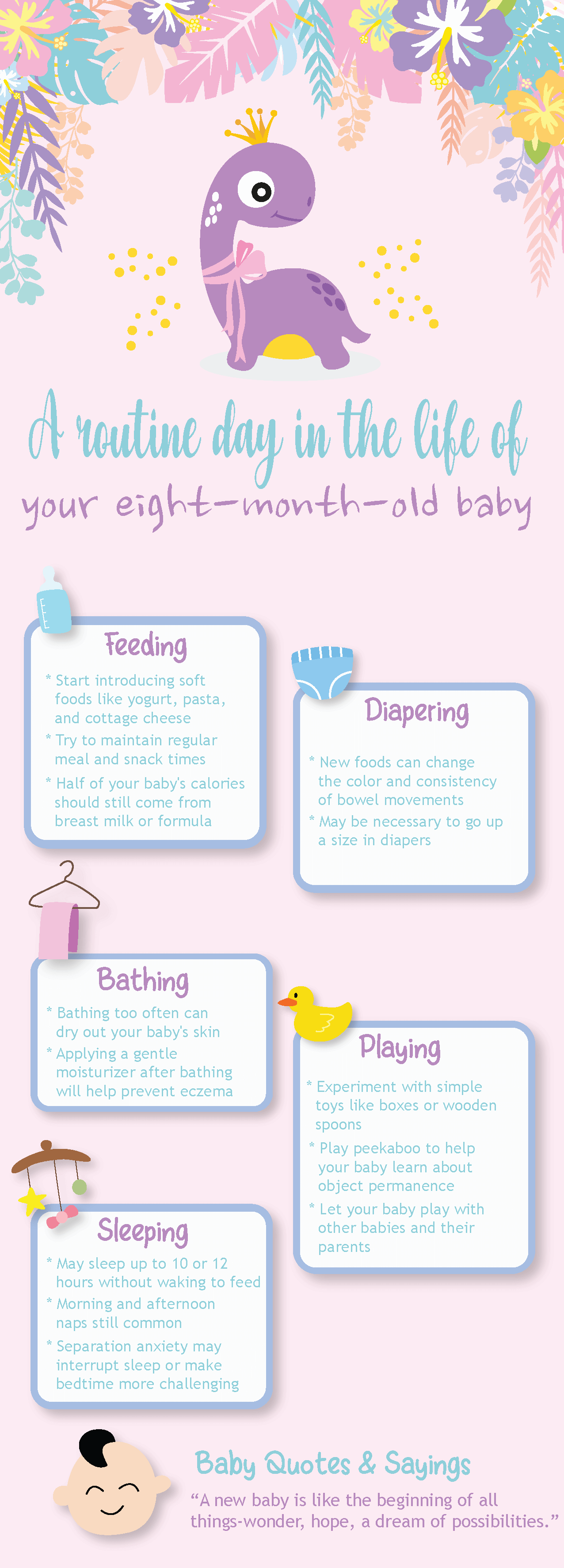
FREQUENTLY ASKED QUESTIONS
How much do babies weigh at 8 months?
- A typical 8-month-old baby weighs between 17.5 and 22 pounds. This age group of girls may weigh between 17 and 21.5 pounds.
What can I feed my 8-month-old baby?
- At 8 months, “junior” foods with a coarser texture are appropriate. Yoghurt, oatmeal, mashed bananas or potatoes, or thicker pureed vegetables may appeal to your child.
How much sleep does an 8-month-old baby require?
- Your baby will most likely sleep 12 to 16 hours every day. This includes sleeping for a longer period of time at night and taking two naps throughout the day. Expect occasional disruptions with this plan, as separation anxiety can cause her to be a little fussier than usual. She may wake up during the night and sleep fewer hours than she used to, but this is a passing phase.
Can a baby nap too long?
- If your baby is having difficulties sleeping through the night, limiting her daytime naps may be beneficial. If she has trouble sleeping at night, you may wish to minimize her afternoon naps.
Your Parenting Life: Introducing a New Sitter and Dealing with Weaning
If you have separation anxiety and require a new sitter or caregiver at the same time, you may need to take some extra steps to assist prepare your child for a new face. Here are some pointers for introducing your child to a new caregiver:
- Hold your baby like you and the sitter converse. She’ll realize this is a trustworthy individual.
- Allow the sitter to converse with your baby as you hold her to instil confidence.
- Place your baby on the floor with her favourite toys and invite the sitter to gradually approach her and engage in play with her.
- Try to leave the room briefly, and if all goes well, you can confidently leave her with your trusted caregiver.
If you’ve been breastfeeding, you may notice that your baby is less interested in breastfeeding around the time she begins to explore various foods. This is known as natural or infant-led weaning, and it is totally OK to let your baby’s tastes take the lead. Continue to introduce different foods to her while still allowing her to breastfeed whenever she wants.
Some mothers are under pressure to wean their babies for a variety of reasons, such as a lack of support and encouragement from family and friends, or a lack of pumping and feeding facilities at their employment. The decision to wean is highly personal, but it is still recommended to breastfeed exclusively for the first six months of your baby’s life and to continue while feeding other foods for at least the next year or two. For weaning advice, speak with your baby’s healthcare provider or a lactation consultant.
There’s no need to feel rushed to wean if you’re assured your baby is getting enough nourishment.
This page is based on professional advice from reputable medical and government organizations, such as the American Academy of Pediatrics and the American College of Obstetricians and Gynecologists. This page’s material should not be used in place of professional medical advice. For a complete diagnosis and treatment, always seek the advice of a medical expert.


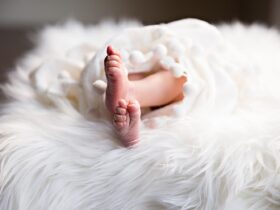

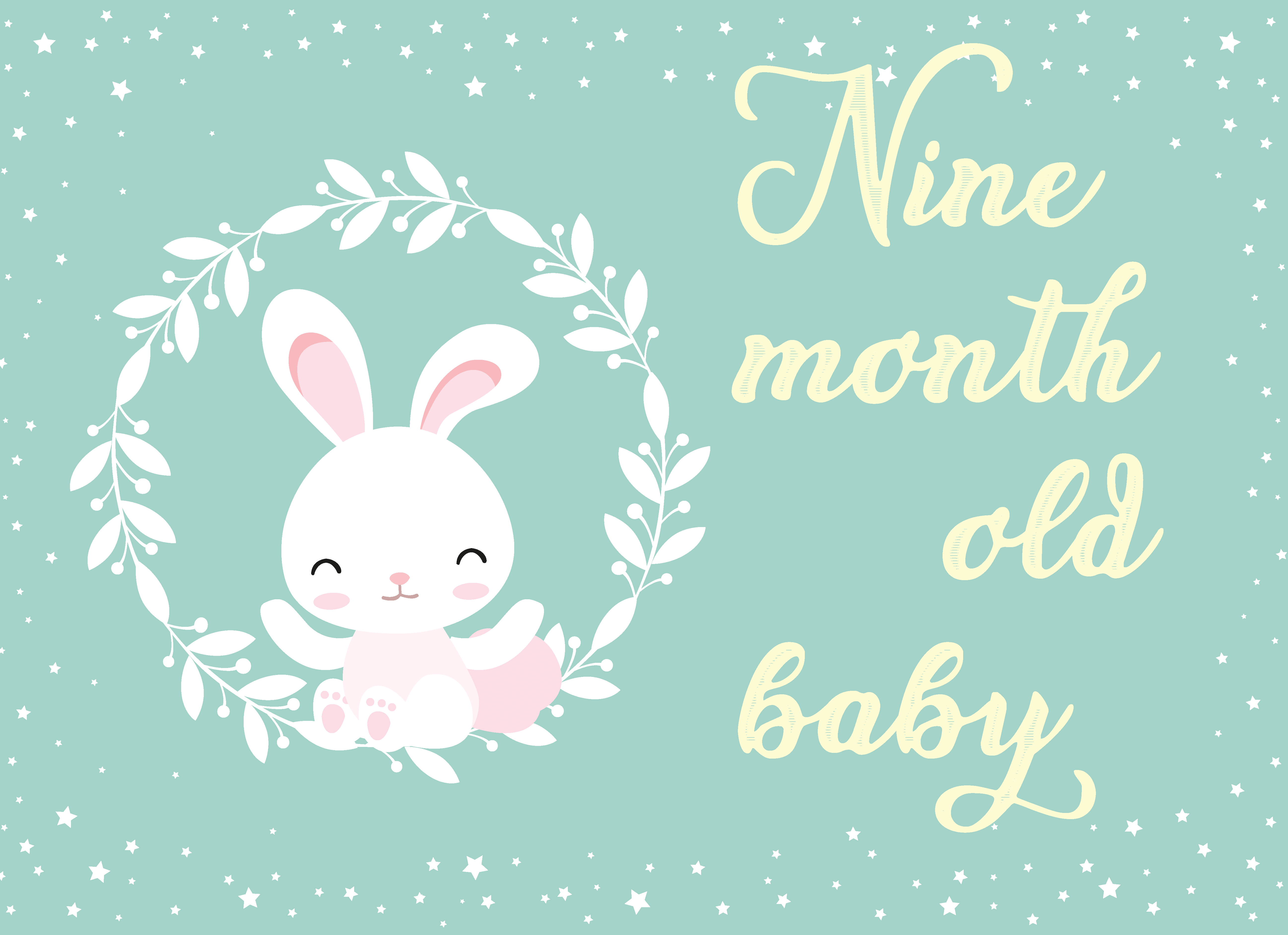

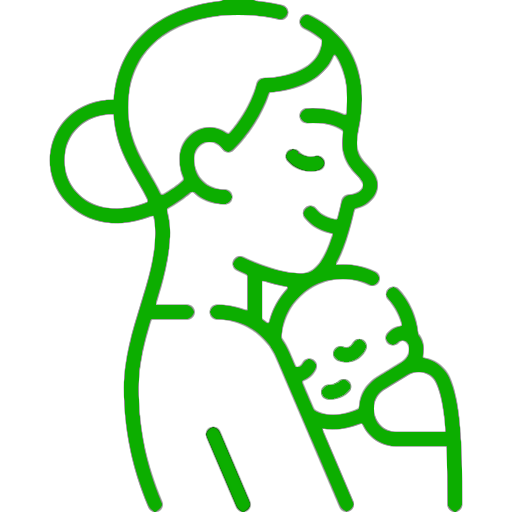

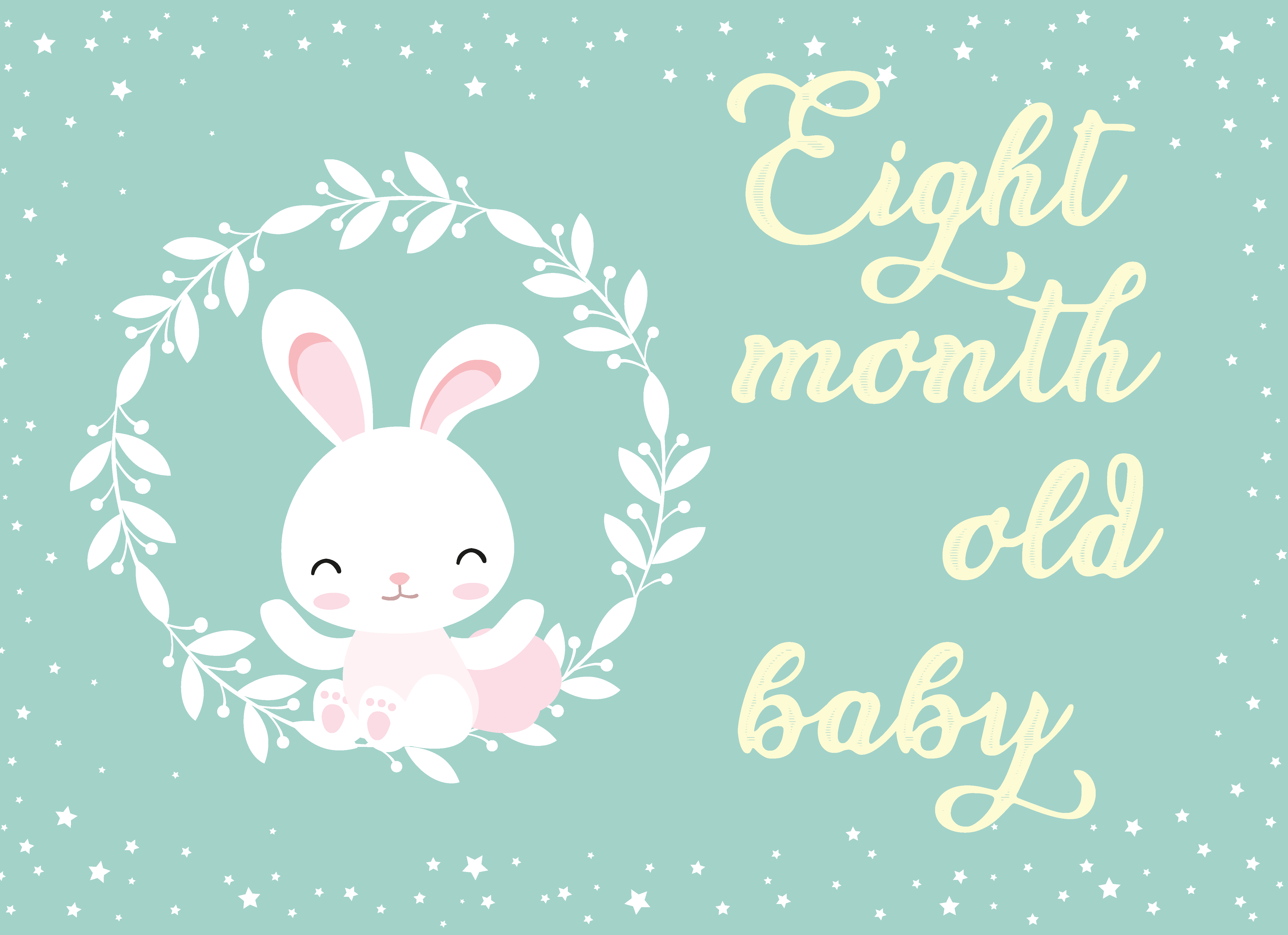
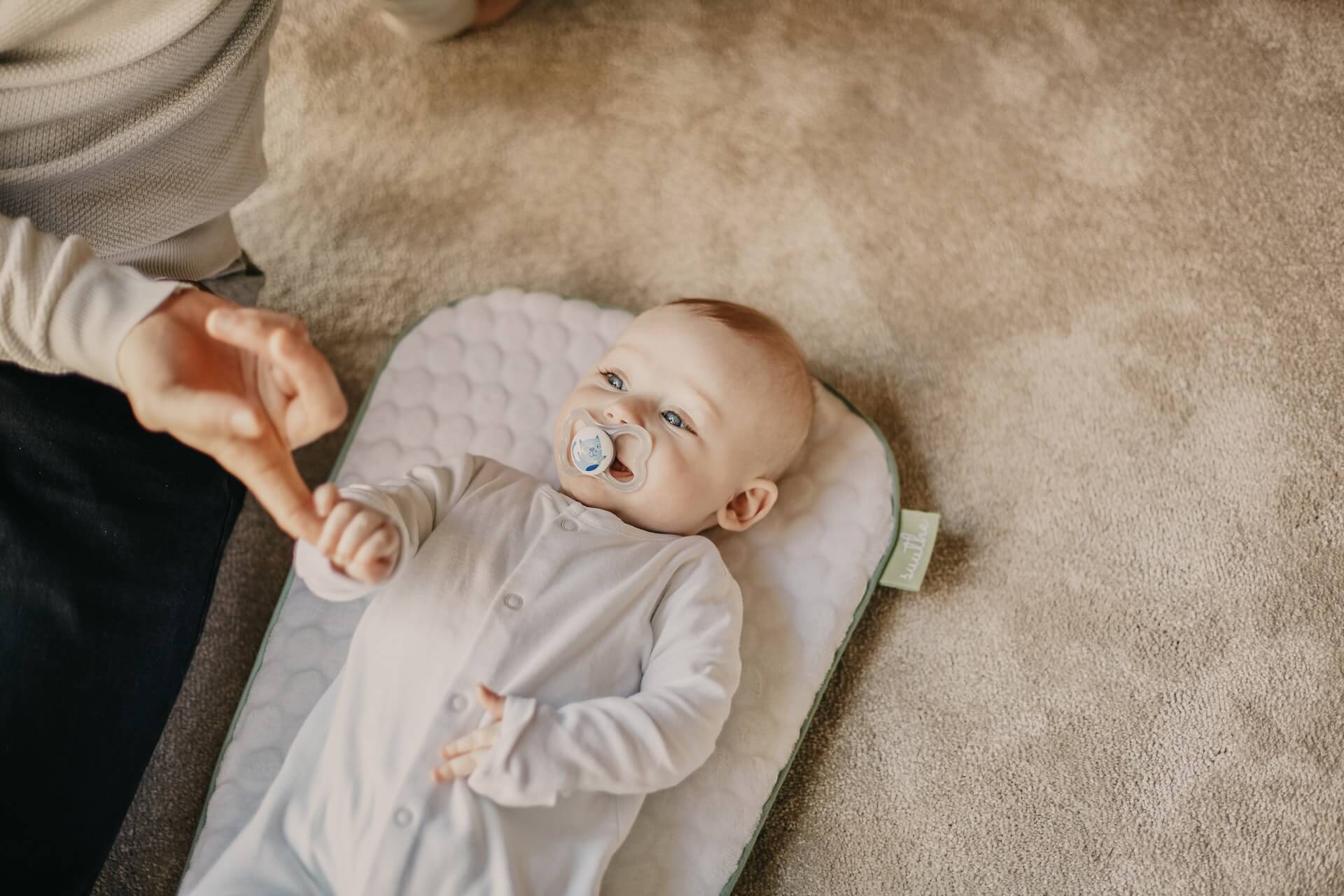
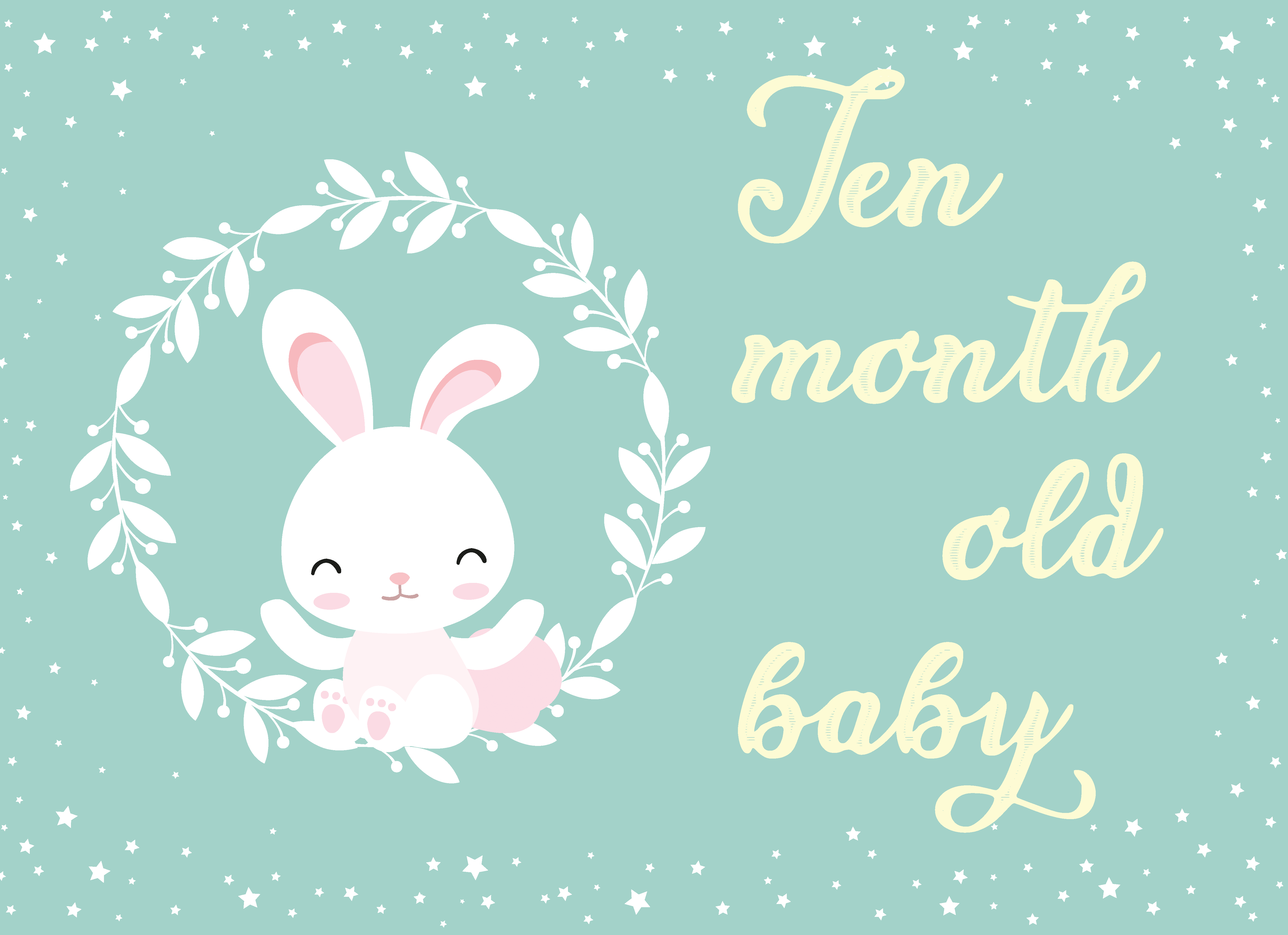
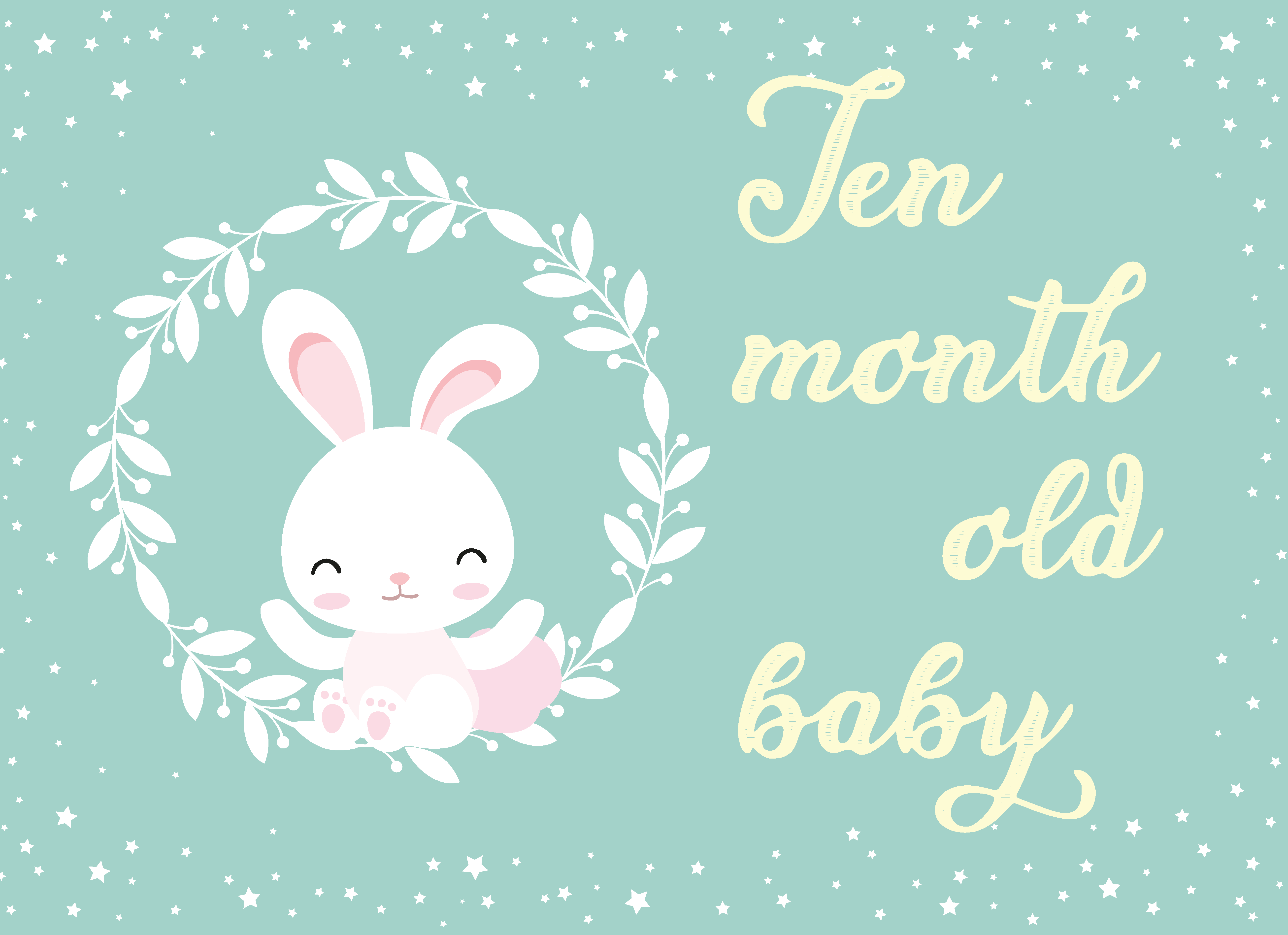
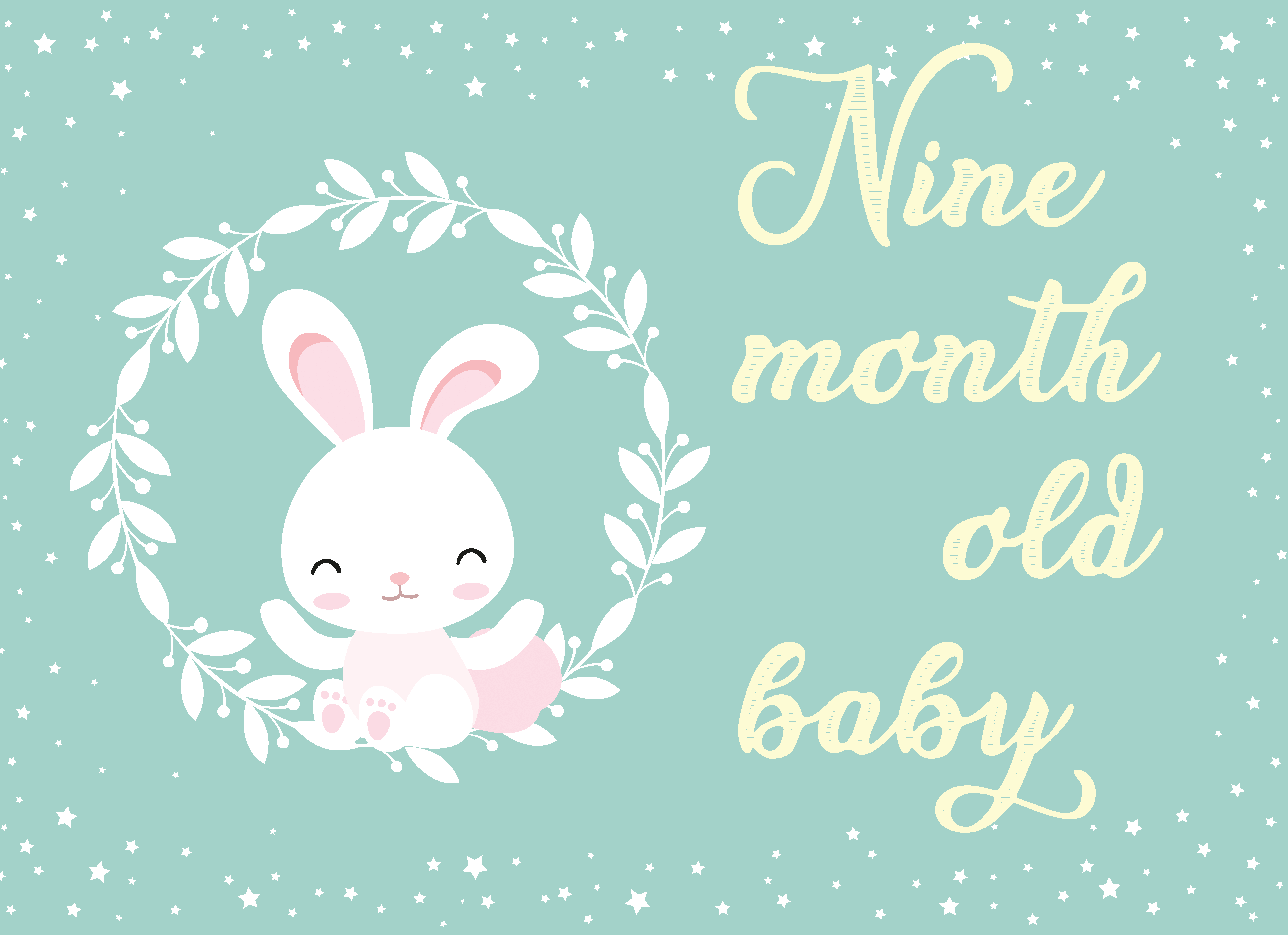
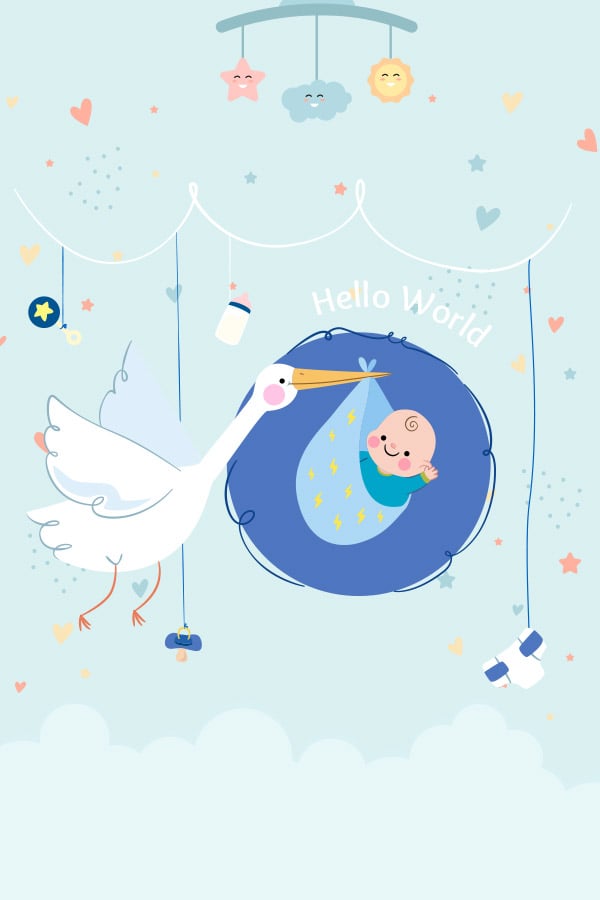
Leave a Reply
View Comments